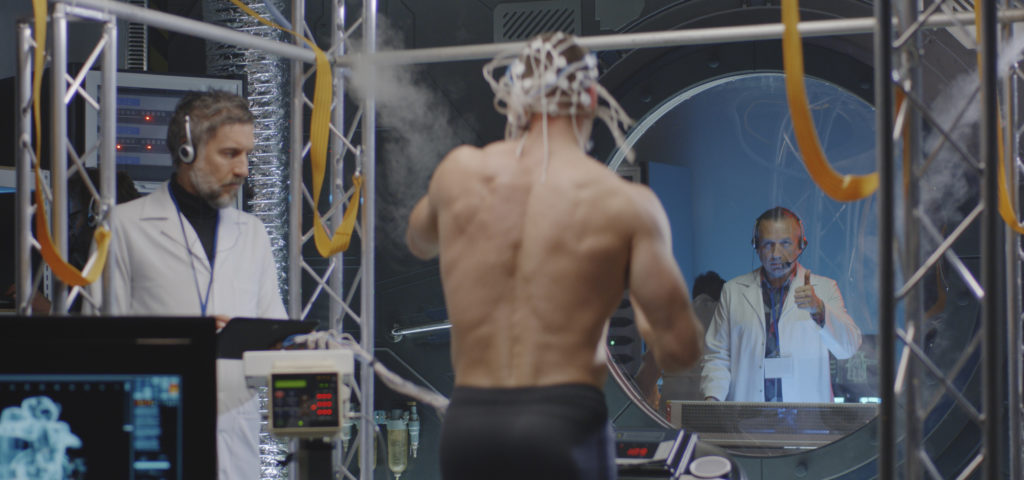Quick Hits
Daily brief research updates from the cognitive sciences

Those of you who have followed my writing will know that I have reported regularly on the amazing benefits of exercise and walking on the brain, body, and cognition.
However, though we know that walking can stimulate various cognitive functions, we also know that doing multiple complex or demanding tasks together reduces performance. So, walking helps stimulate creativity and improves cognitive performance – normally after walking, while walking, performance on cognitive tasks decreases. Which is often why when you really need to think something through you automatically stop or pause.
This is all in line with what we know of cognitive and brain functioning. However, some researchers from the University of Rochester Medical Centre have just published a paper with some surprising results.
What did they find?
26 healthy 18-30-year-olds did a series of tasks. First they did a response task to images of pictures while sitting. This was considered their “baseline” performance level. They then conducted the same task while walking on a treadmill. Almost all previous research showed that performance decreases. This was the case in 12 participants, however, in 14 participants performance increased!
All participants had EEG recordings of their brain activity – and they found that in these 14 prefrontal activity (associated with cognitive performance) in the brain increased during walking tasks leading to higher performance. However, before you get too excited there was no way to predict this from any other data or even observing them.
This suggests that in some people in this study more than 50% of people improve performance on cognitive tasks while walking. Which if we learn to predict this could lead to more effective strategies for cognitive performance for these people.
It could also be that these people also intuitively do tasks that boost their performance. But beware – the research on multitasking is still clear: the more tasks you do concurrently, the lower the performance, the more mistakes you make, and the slower you are. It also compares a highly automated task, walking with a cognitive task, not two cognitive tasks. So, no free card on multi-tasking here.
Single tasking, is still the best advice I can give to boost performance●

Andy Habermacher
Andy is author of leading brains Review, Neuroleadership, and multiple other books. He has been intensively involved in writing and research into neuroleadership and is considered one of Europe’s leading experts. He is also a well-known public speaker speaking on the brain and human behaviour.
Andy is also a masters athlete (middle distance running) and competes regularly at international competitions (and holds a few national records in his age category).
Reference
Eleni Patelaki, John J Foxe, Kevin A Mazurek, Edward G Freedman.
Young adults who improve performance during dual-task walking show more flexible reallocation of cognitive resources: a mobile brain-body imaging (MoBI) study.
Cerebral Cortex, 2022
DOI: 10.1093/cercor/bhac227
More Quick Hits
COVID on the Brain
Many COVID-19 patients have reported various neurological symptoms – the well-known brain fog, but also headaches and decreased cognitive function over months and extended periods of time. This even without serious infection or hospitalization. The research seems to...
Life satisfaction after work related to personality traits
As many of you know I have done plenty of work into personality and so found this study interesting. Dusanee Kesavayuth of Kasetsart University in Bangkok, Thailand analysed data from 2,000 adults aged between 50 and 75 in the British Household Panel Survey and found...
Unique regulation of brain in yoga practitioners
Quick HitsDaily brief research updates from the cognitive sciences es, you yoga practitioners knew you were special and here is the science to prove it! In this older study I came across (2018) participants were recruited to see how they dealt with...
Neurodivergence and the lonely brain
Quick HitsDaily brief research updates from the cognitive sciences eurodivergence is term that describes those that are not “neurotypical” such as those with autism and ADHD. In the surge of research into loneliness spurred by the pandemic it has...
Art Engages the Social brain
Quick HitsDaily brief research updates from the cognitive sciences reported in last week’s Quick Hits on how engaging in the arts has a relationship with self-control and avoidance of disagreeable and criminal behaviour and that is why this...
Swearing can increase strength, self-confidence, and risky behaviour
Quick HitsDaily brief research updates from the cognitive sciences wearing is frowned upon in many circumstances but is also used by many people in casual situations and particularly by comedians. So why do we swear if it is taboo? A team of...






